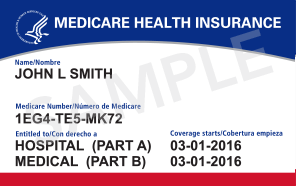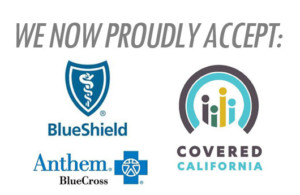WEBPT – By Tom Ambury – June 24, 2018
Collecting coinsurance, copays, and deductibles upfront is an important piece of the effort to accurately value the services we provide. And yet, we still hear about practices that routinely waive their patients’ deductibles and copays. Today, I’ll discuss another reason not to routinely waive deductibles and copays.
In the past, I’ve written about collecting deductibles and copays when a patient presents with a federally funded insurance like Medicare. In cases involving the Department of Justice, the powers that be have stated very clearly that the practice of routinely waiving deductibles and copays can be a violation of the Federal Anti-Kickback Statute. But what about commercial insurances like BlueCross BlueShield, Aetna, and Cigna? That’s what I’ll chat about today.
Why You Shouldn’t Waive
Before I get into the compliance-related reasons to collect full payment for our services, let me say that to me, from a business standpoint—and with the knowledge that payments are continually being reduced as the cost of doing business keeps rising—it’s hard to imagine why a provider wouldn’t want to collect full payment for his or her services. Here’s an example I came up with to better explain my point: Let’s say you’re getting paid $75 per visit from a commercial insurance company, with $25 of that total coming from the patient’s copay and $50 from the insurance company. (These totals don’t necessarily reflect what’s happening in the real world; for illustration purposes, we’re staying in Tom’s World.) Wouldn’t you rather get paid $75 per visit versus waiving the copay and accepting only $50? Aren’t your services worth the full $75—if not more?
And if the business reasons are not enough to sway you toward collecting deductibles and copays, keep in mind that there are potential legal ramifications for those who waive them. In a recent federal court case, a provider sued Cigna for failing to pay out-of-network claims. Cigna then countersued the provider for potential injunctive relief under certain ERISA laws, and the court found there was merit for the countersuit, so Cigna was able to attempt to obtain damages for unjust enrichment and intentional tortious interference with contractual relations. What?! Holy legalese, Batman! Here’s what all that mumbo-jumbo is really getting at:
The Employee Retirement Income Security Act (ERISA) is a broad set of federal laws that govern health insurance (among other things).
The injunction would be filed to stop the provider from discounting the services based on the “in” vs. “out” of network rates.
Now, the tortious interference part is a little more complicated:
Commercial insurance providers have contracts (i.e., legally binding agreements) to provide health insurance to employers and employees—and now, under the Affordable Care Act, to individuals as well.
Commercial insurance providers charge a premium for that health insurance. The employer, employee, and/or individual pays that premium.
The health insurance contract establishes mutually agreed-upon deductible and copayment amounts for both in-network and out-of-network providers.
Typically, the contract also establishes a financial incentive for beneficiaries to use in-network providers as well as a financial disincentive to use out-of-network providers.
Because this is a contract—which, again, is a legally binding agreement with an employer or individual—if a provider comes along and decides to unilaterally waive patient deductibles and copays, then the provider is reducing the covered person’s contractual financial obligation.
So, by waiving deductibles and copays, the provider is interfering with the employer’s and/or individual’s contract with the insurance carrier—and that puts the provider at risk of being sued for damages.
This case is representative of an increasingly common trend: commercial carriers’ aggressive enforcement of the copayment and deductible provisions in their contracts. And because insurers are experiencing success on this front, I would anticipate that as time goes on, we’ll see more insurer-led actions against providers who routinely waive deductibles and copays—both in-network and out-of-network.
What if, for example, you’re an out-of-network provider, and you decide to accept the lower, in-network deductible and copay—and you disclose your policy to accept the lower amount? Well, that’s exactly what the provider in this case did, and that strategy failed.
Even though this case involved an out-of-network provider, the same would apply to in-network providers who routinely waive or accept lower amounts for the patient’s co-insurance. If, as an in-network provider, you routinely waive deductibles and copays, you are interfering with the employer’s and/or individual’s contractual obligation—and potentially violating your own provider agreement with the insurer.
The Bottom Line
Regardless of whether you’re an in-network or out-of-network provider, routinely waiving deductibles and copays could bring some serious—and seriously expensive—litigation your way.
What to Do Instead
Adopt the policy of making every reasonable effort to collect all deductibles and copays—unless the patient can demonstrate a financial hardship.
Establish a procedure patients must use to demonstrate a financial hardship, and document it. Also, make sure the patient signs an acknowledgment that he or she has a financial hardship.
Even if a patient can demonstrate a financial hardship, you don’t necessarily have to waive it in full. In other words, you’re free to negotiate. Ask the patient, “What can you afford to pay each visit?”
Remember that your services are valuable!
Finally, here’s how the PT Compliance Group can help:
Our Compliance in a Box: Compliance Plan contains written policies for Anti-Kickback and patient inducement laws.
We can provide training for your staff on these issues.
We can provide consulting services to help you navigate the compliance maze surrounding this issue and any other compliance issues you may encounter.
Questions about ACA, private Medical Insurance and health insurance reimbursement? Physician Credentialing and Revalidation ? or other changes in Medicare, Commercial Insurance, and Medicaid billing, credentialing and payments? Call the Firm Services at 512-243-6844
Reposted from the following WEBPT blog: https://www.webpt.com/blog/post/legal-compliance-one-more-reason-to-collect-patient-deductibles-and-copays


